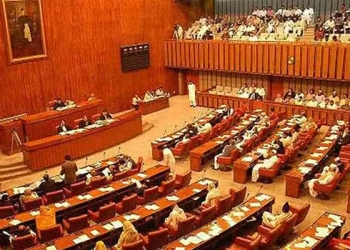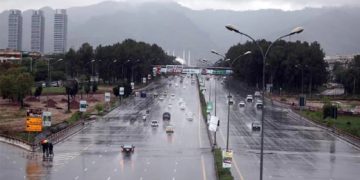Electricity is a basic necessity for the development and well-being of any country. However, in Pakistan, electricity prices have become almost unaffordable for many consumers, especially the poor and the middle class.
According to the International Energy Agency (IEA), the annual average price of electricity in Pakistan increased from $40 per megawatt hour (MWh) in 2019-2020 to $80 per MWh in 2023. This is one of the highest rates in the region and the world.
The main reason for this steep rise in electricity prices is the high capacity charge component, which accounts for almost 40% of the end-user tariff. Capacity charge is a fixed cost that power producers receive for their installed capacity, regardless of how much electricity they actually generate and sell. It is indexed with multiple parameters, such as exchange rate, interest rate, and inflation. Therefore, any depreciation of the rupee, increase in global interest rates, or rise in local or U.S. consumer price index (CPI) leads to a higher capacity charge.
Another reason for the high electricity prices is the transmission and distribution losses, which are around 18% of the total electricity supplied. These losses are due to technical inefficiencies, theft, and corruption in the transmission and distribution network. They are passed on to the consumers as part of the tariff.
The high electricity prices have a negative impact on the economy and society of Pakistan. They increase the cost of production and reduce the competitiveness of industries.
The masses are incensed at their inflated power bills on top of their already-rising frustration with the fast increasing cost of living brought on by runaway inflation. Consumers have been heavily struck by the recent rise in their rates since the average cost of electricity has more than doubled for low- to middle-class homes since January, and many families finding it difficult to pay their bills. The weight of government taxes in energy bills has increased significantly along with the sharp rise in fuel price adjustment fees.
The bad news is that until long-standing power sector reforms are implemented in order to drastically reduce line losses, control the widespread corruption in the distribution companies, stop widespread power theft by the powerful, and, most importantly, reduce reliance on imported fuels by switching to local fuels for generation and encouraging renewable energy, electricity prices in the country will continue to rise even after a decline in international fuel prices.










![This handout photo released by the IRGC’s official Sepah News Telegram channel shows smoke billowing from a site bombed by Israel in Tehran early on June 13, 2025 [Sepah News/AFP]](https://mmnews.tv/wp-content/uploads/2025/06/Israel-attack-on-Iran-1-350x250.jpg)
















